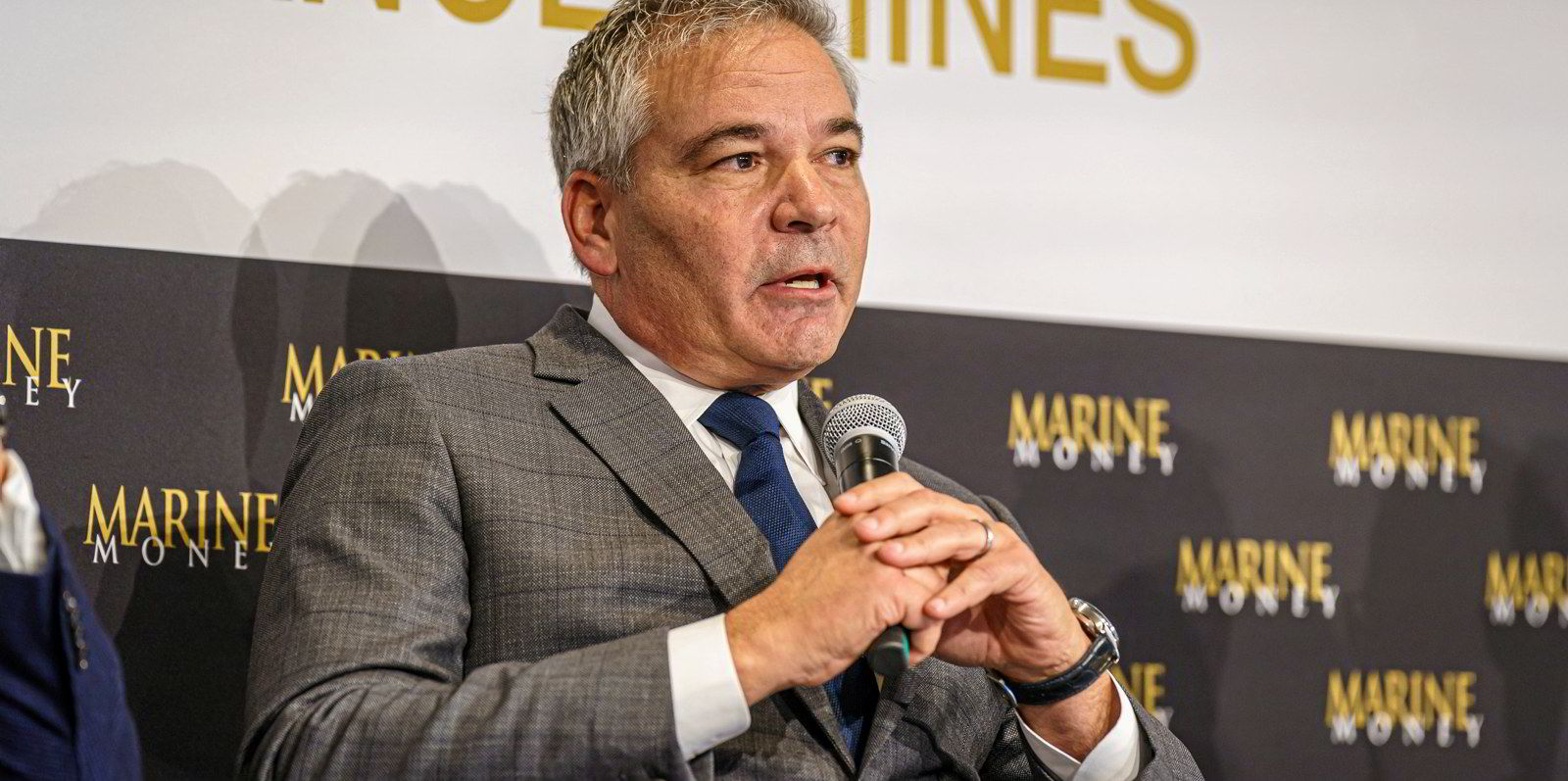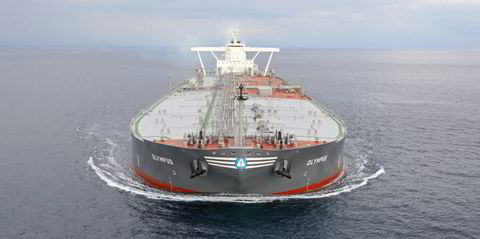California-based Oaktree Capital Markets has been around shipping longer than almost any other private equity player and gotten much right in its history of large and varied bets on the sector.
So when Oaktree gets one wrong — as it did last week in its aborted attempt to lighten its 66% holding in Danish product tanker owner Torm — there are bound to be eyebrows raised and post-mortems conducted.
Oaktree’s failed attempt to sell 5m Torm shares caught the attention of Streetwise, which spoke with ship finance experts, finding some predictable explanations and even a little finger-pointing.

The discussions also veered in an unexpected direction: there are questions emerging over whether Oaktree may now be looking to unload at least part of its position in dry bulk owner Eagle Bulk Shipping of Connecticut, and whether some Greek names could be lining up to investigate.
We’ll get to Eagle Bulk later, but first on with the equity-deal autopsy.
Oaktree disclosed its plans to lighten its holding of some 54m Torm shares on 29 March through a secondary public offering.
Investors baulked the following day, sending the stock down 13% as a beefy underwriting team led by Citigroup, Evercore and Jefferies attempted to build the deal book.
While it is unclear at what price Oaktree could have done the deal, it is within reason that it might have been even lower than the $28.53 closing price on 30 March after the investor sell-off.
In any case, Oaktree disliked the numbers and opted to pull the offering.
So how did they get this wrong?
“They’ve owned the stake for a number of years and they don’t hold these positions forever,” said one financier. “And the stock was up something like 290% over the past year. So it seemed as good a time as any to begin to monetise their position.
“Shareholders did not react well to the announcement. I think that happened for a number of reasons. The market has been volatile lately. Torm isn’t the most liquid stock and investors may have feared that this was the first of many Oaktree sales. Oaktree said this is too much of a discount and clearly was not comfortable transacting.”
Overall value
A second financier notes that when a private equity firm holds a stake as big as Oaktree’s in Torm — the position is worth about $1.7bn at the current share price — there are only a couple ways it can go.
“One alternative is to do a strategic transaction — an M&A or consolidation deal,” he said. “Otherwise what most large shareholders do is start a monetisaton programme and the sales get easier as the stake gets smaller. The first transaction is always the toughest.”
The latter approach is not something new to Oaktree. Indeed, in one example, it has successfully trimmed its position in another Danish product tanker owner, Hafnia, from 20.4% in 2021 to 4.97% currently, through profitable block sales to private buyers in January and last November.
“Their patience with Torm has been rewarded so far. They haven’t rushed to monetise and they rode the stock all the way up,” said the second financier.
Still, another public shipowner with experience in equity deals is less impressed with the aborted deal, saying he was left dumbfounded by the whole exercise.
‘Doomed to fail’
“It was doomed to failure even before it launched,” he said. “They launched it on the Thursday before the end of the quarter. Product tanker companies already were trading weaker. In a tough market, funds don’t want to allocate new risk before the end of a quarter.
“Even pulling the deal at the end was not necessarily the right decision, as in the bigger picture Oaktree could have started what is going to be a lengthy exit. It was more important to start than at what price to start.”
One is also left to puzzle over whether this is just the beginning of Oaktree’s exit from Torm, or from its other shipping investments as well.
Most notably, Oaktree holds a 25% stake in Greek dry owner Star Bulk Carriers and a 27.6% position in Eagle Bulk, the Stamford-based owner of supramax and ultramax bulkers.
Now about that Eagle Bulk stake. It’s been around since 2013, which is a very long time for any private equity backer to be in a stock, even Oaktree. And while Oaktree has from time to time cut back its holding in Star Bulk, it has sold only a tiny slice of Eagle Bulk.

Coincidentally, Eagle Bulk recently made a public filing in which it renewed what is called a “shelf registration” of its securities potentially available for sale. Within that update, Eagle Bulk registered for sale the 3.8m shares held by Oaktree.
From the Eagle Bulk standpoint, this appears to be pure housekeeping. Shelf registrations need to be renewed every three years. Eagle Bulk’s expired last year. Plus it first registered Oaktree’s shares for sale in 2016, then again in the 2019 renewal.
Routine enough? Maybe. Except that the filing comes with rumours that a pair of Greek companies — one private and one public — have been investigating a buy of Oaktree’s Eagle Bulk shares.
Defence strategies
If true, what might that mean? It seems unlikely to equate to a move to acquire Eagle Bulk. For one thing, while Oaktree is Eagle Bulk’s largest shareholder, the position is not a controlling stake. Still, a move on the whole position would no doubt be treated as hostile.
That could lead Eagle Bulk to incorporate a “poison pill” in its bylaws, much as New York tanker owner International Seaways did last May when Norwegian tycoon John Fredriksen took a 16.6% stake in the company.
“I don’t think that’s a realistic way to win control of the company,” said one shipowning executive. “Greeks have been enthusiastic on dry bulk lately and it could be a way to invest at an attractive valuation and take future upside in shares. But once you’re a shareholder who knows what the options might be in a consensual way?”
An Eagle Bulk representative declined to comment when contacted by Streetwise this week.
And Oaktree? Was the attempted Torm sale just about Torm or something wider? Is a decade in Eagle Bulk long enough? So many questions, but an external spokesman for Oaktree said the Howard Marks-led outfit would have no comment.
More shipping finance news
UK shipbroker Braemar is warning shipowners to be prepared for future financing “black swan” events following the demise of Credit Suisse. Click here to read.
Greek tanker owner Performance Shipping is plotting a share repurchase drive equal to 21% of its market capitalisation. The Nasdaq-listed owner of nine aframax/LR2 tankers said it could spend up to $2m on the shares. Click here to read.
Tufton and Womar-backed start-up Stainless Tankers is targeting a main board listing in Oslo after its $67m over-the-counter IPO in March. Click here to read.




